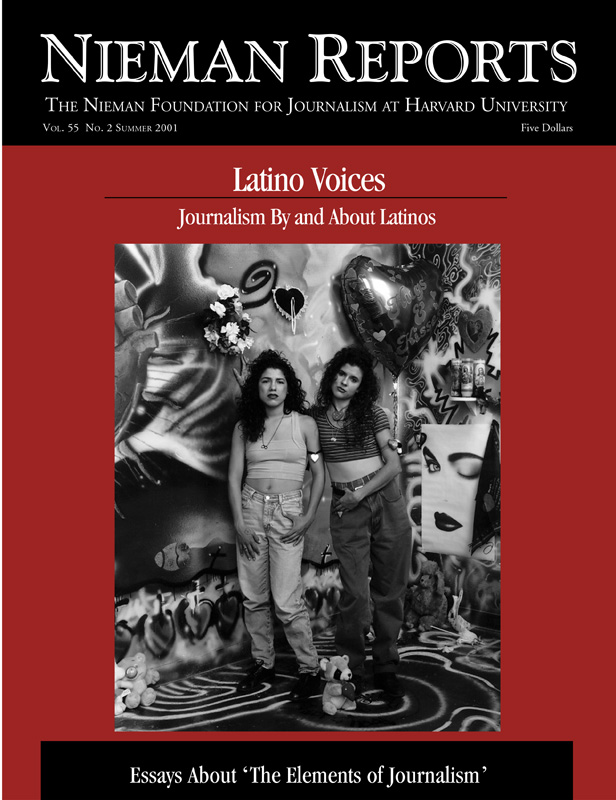”Every journalist—from the newsroom to the boardroom—must have a personal sense of ethics and responsibility—a moral compass. What’s more, they have a responsibility to voice their personal conscience out loud and allow others around them to do so as well….
Innumerable hurdles make it difficult to produce news that is accurate, fair, balanced, citizen focused, independent-minded, and courageous. But the effort is smothered in its crib without an open atmosphere that allows people to challenge one another’s assumptions, perceptions, and prejudices. We need our journalists to feel free, even encouraged, to speak out and say, “This story idea strikes me as racist,” or “Boss, you’re making the wrong decision.” Only in a newsroom in which all can bring their diverse viewpoints to bear will the news have any chance of accurately anticipating and reflecting the increasingly diverse perspectives and needs of American culture.
Simply put, those who inhabit news organizations must recognize a personal obligation to differ with or challenge editors, owners, advertisers, and even citizens and established authority if fairness and accuracy require they do so…. And then managers have to be willing to listen, not simply manage problems and concerns away…. Allowing individuals to voice their consciences in the newsroom makes running the newspaper more difficult. It makes the news more accurate….
This notion of open dialogue in the newsroom is at the core of what a growing number of people who think about news consider the key element in the question of diversity and in the pursuit of a journalism of proportion…. Traditionally, the concept of newsroom diversity has been defined largely in terms of numerical targets that related to ethnicity, race, and gender. The news industry has belatedly recognized that its newsrooms should more closely resemble the culture at large. …intellectual diversity is also difficult for managers. The tendency, for many reasons, is to create newsrooms that think like the boss….
Maybe the biggest challenge for the people who produce the news is to recognize that their long-term health depends on the quality of their newsroom, not simply its efficiency. The long-term interest pulls one toward a more complex and difficult newsroom culture….
Journalists must invite their audience into the process by which they produce the news. …they should take pains to make themselves and their work as transparent as they insist on making the people and institutions of power they cover. This sort of approach is, in effect, the beginning of a new kind of connection between the journalist and the citizen. …it gives the reader a basis on which to judge whether this is the kind of journalism they wish to encourage. …the way journalists design their work to engage the public must not only provide the needed content but an understanding of the principles by which their work is done. In this way, the journalists will determine whether or not the public can become a force for good journalism."


